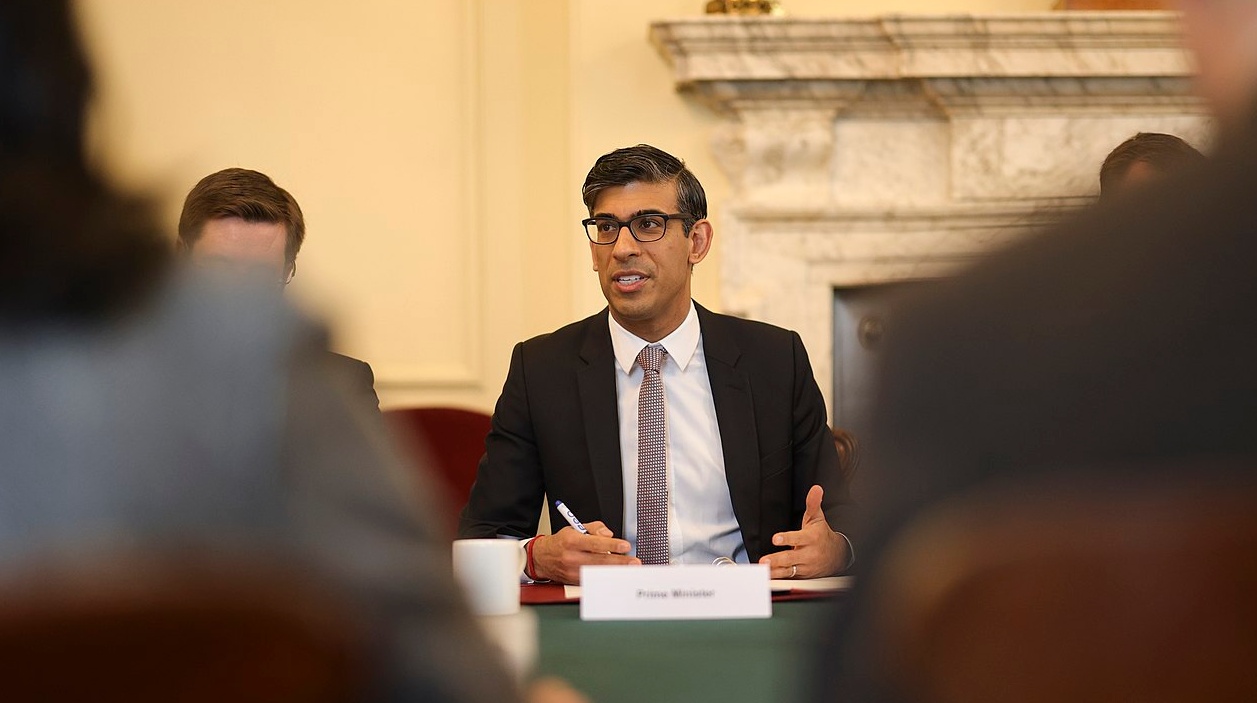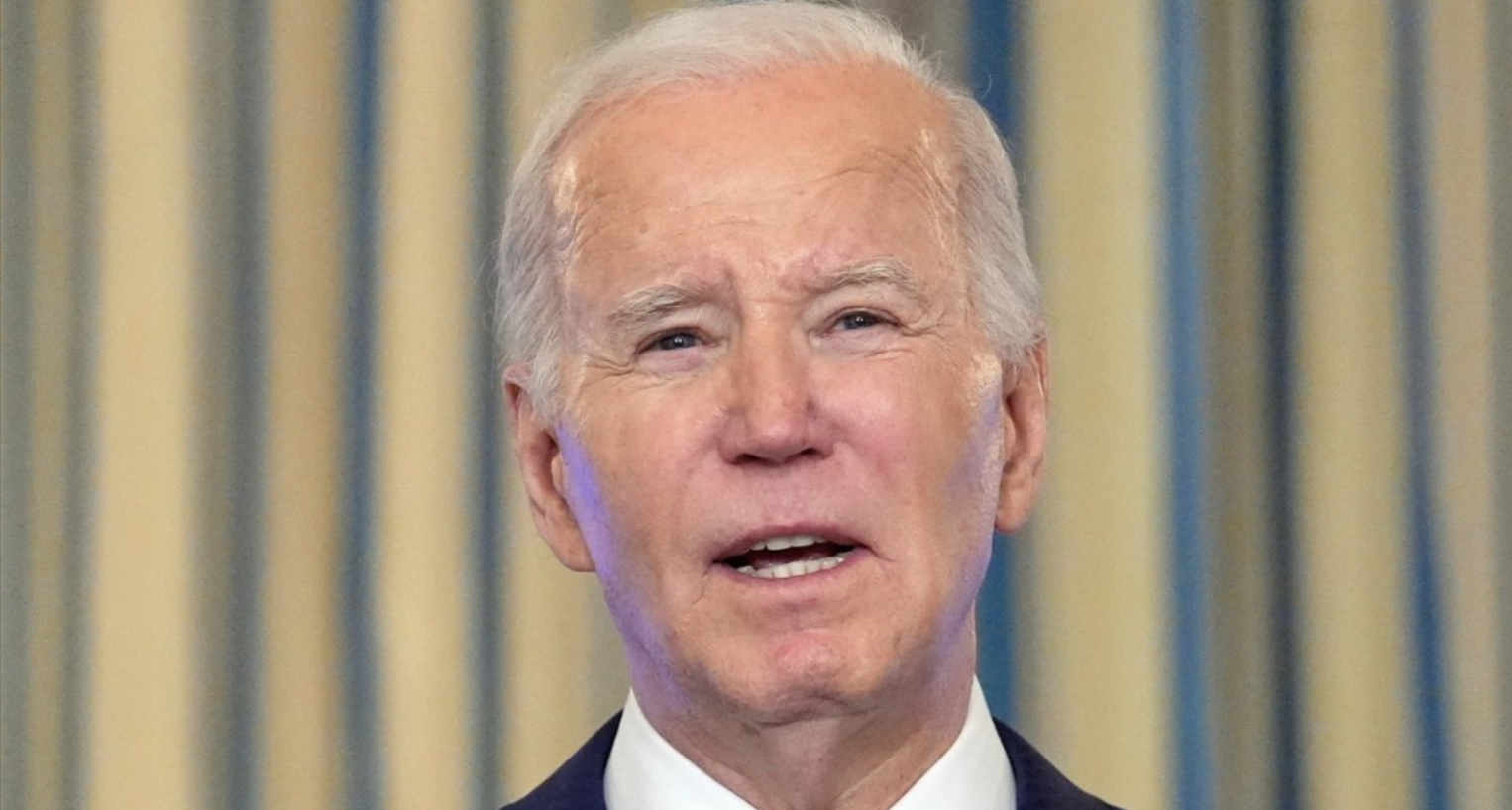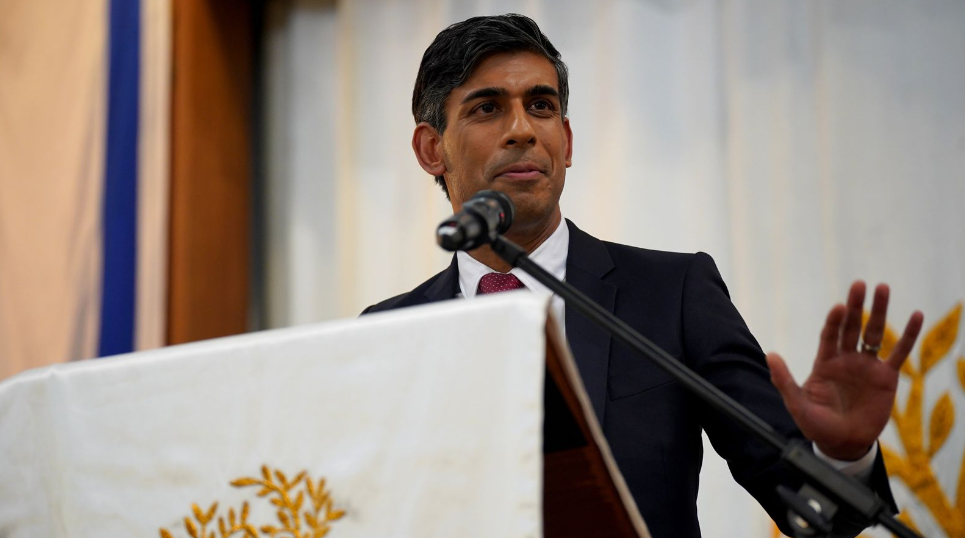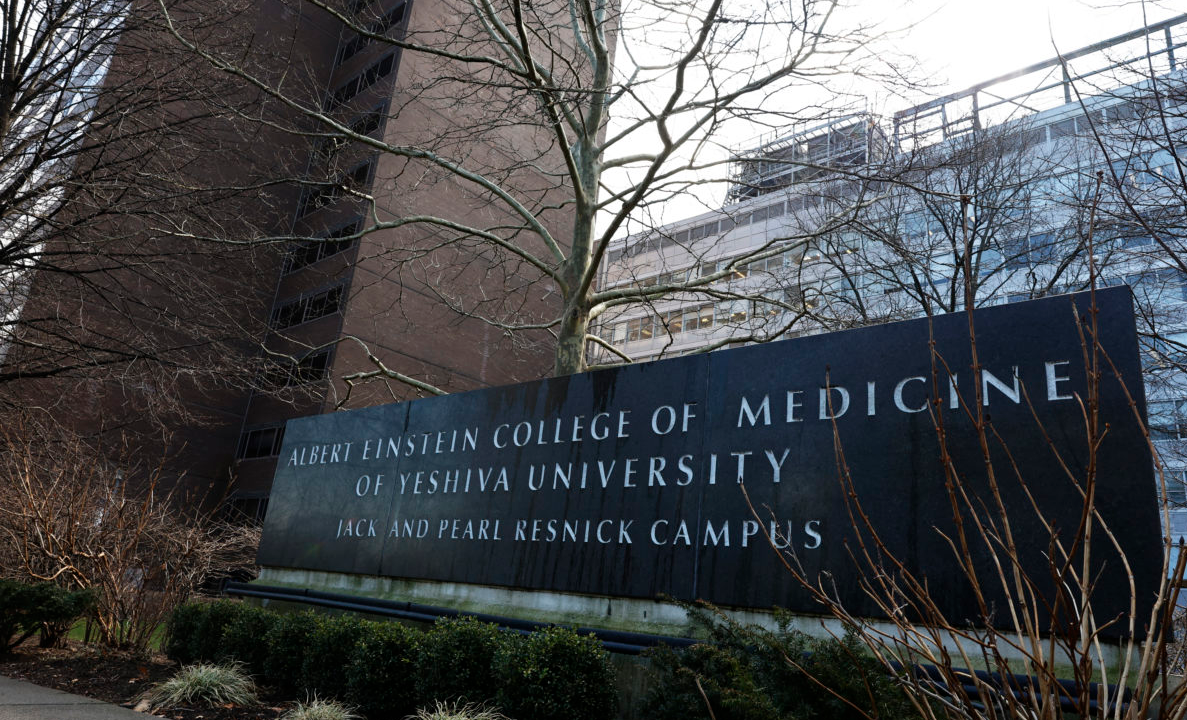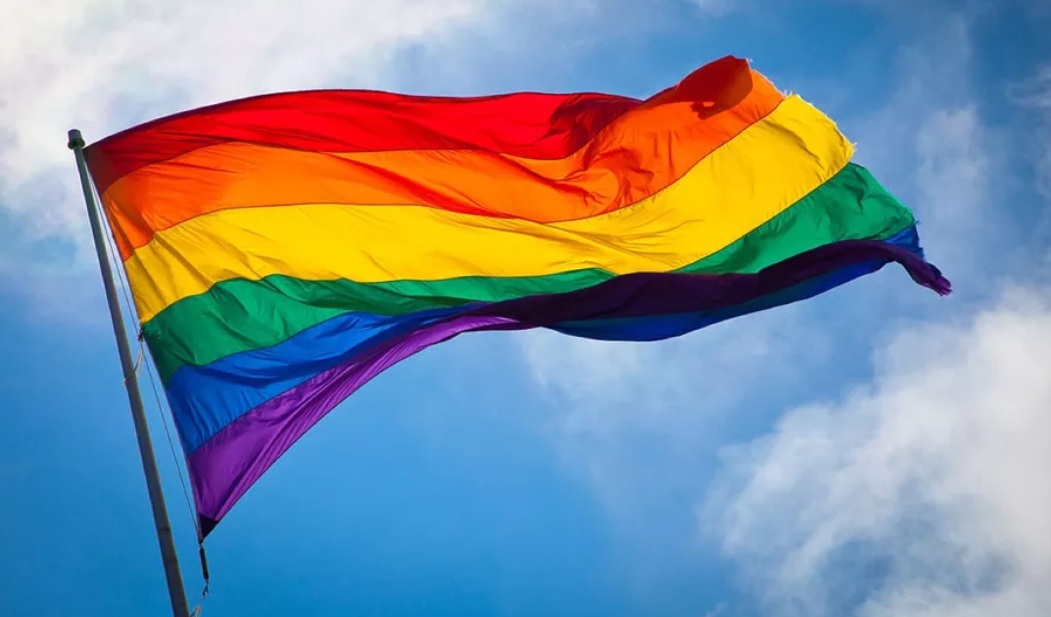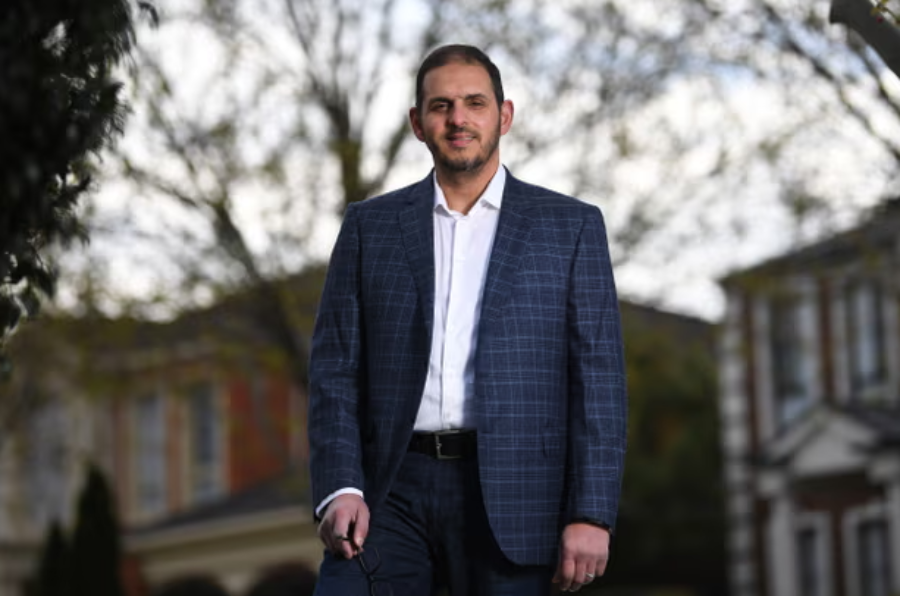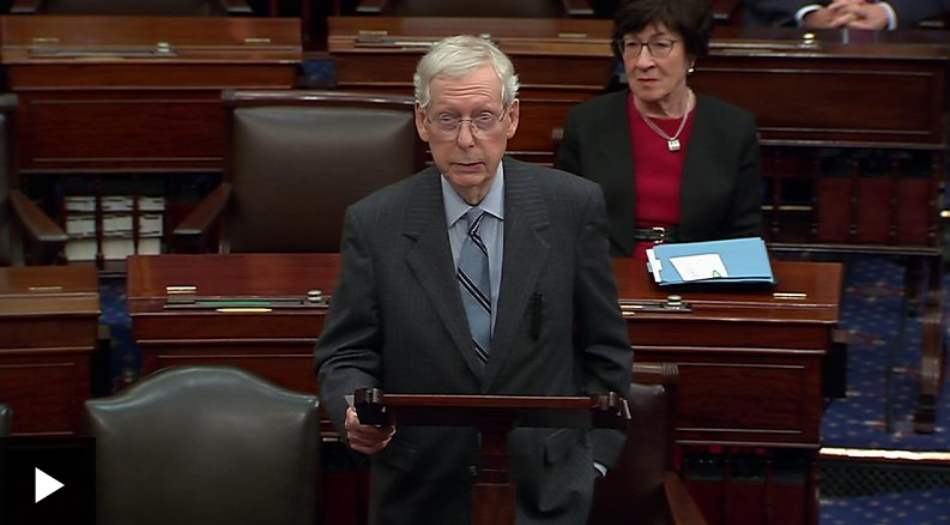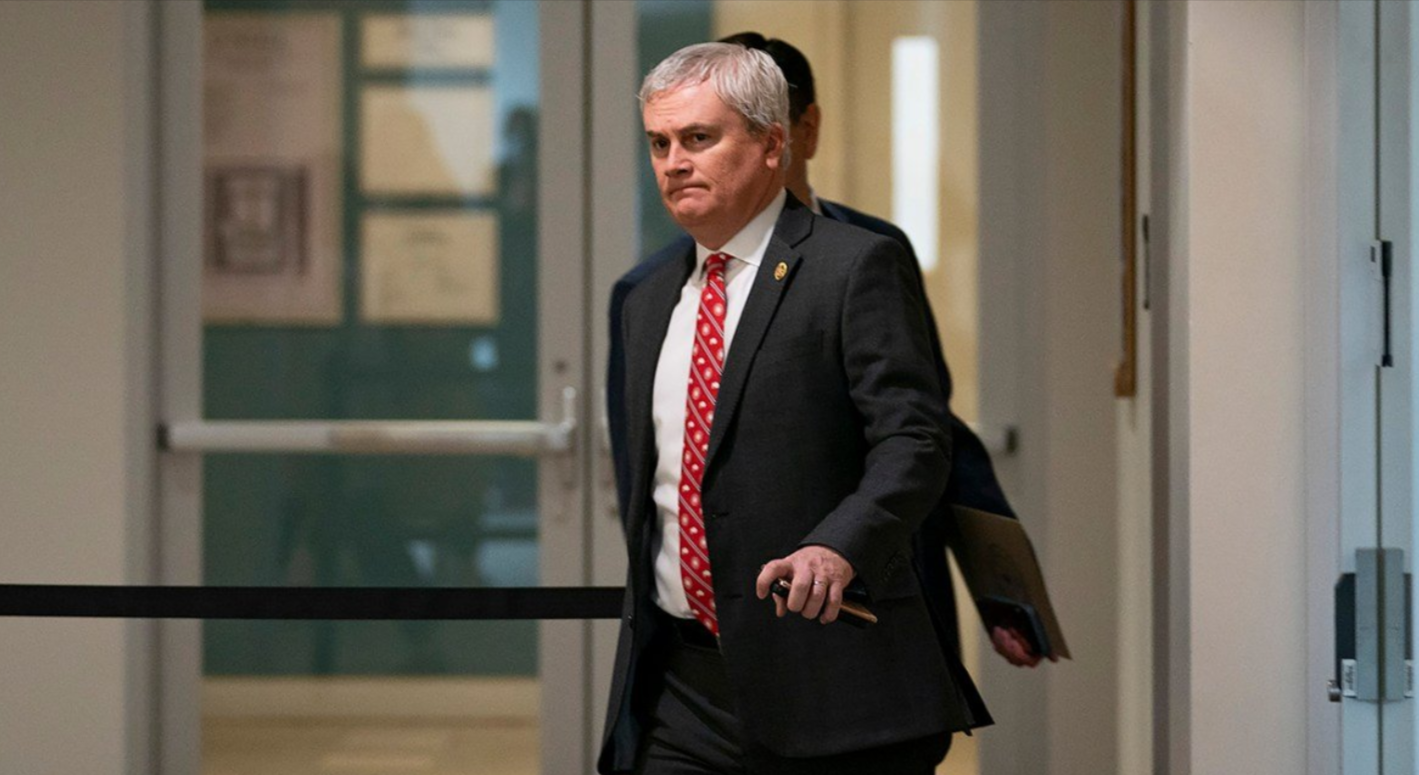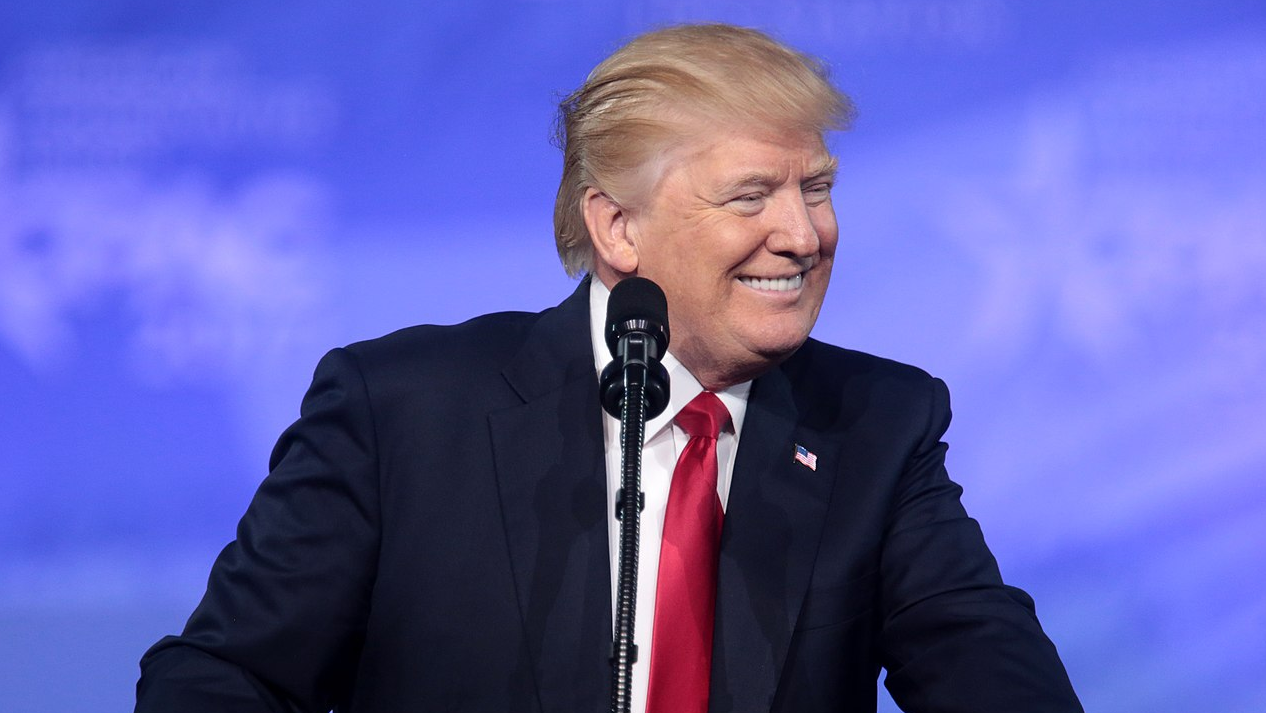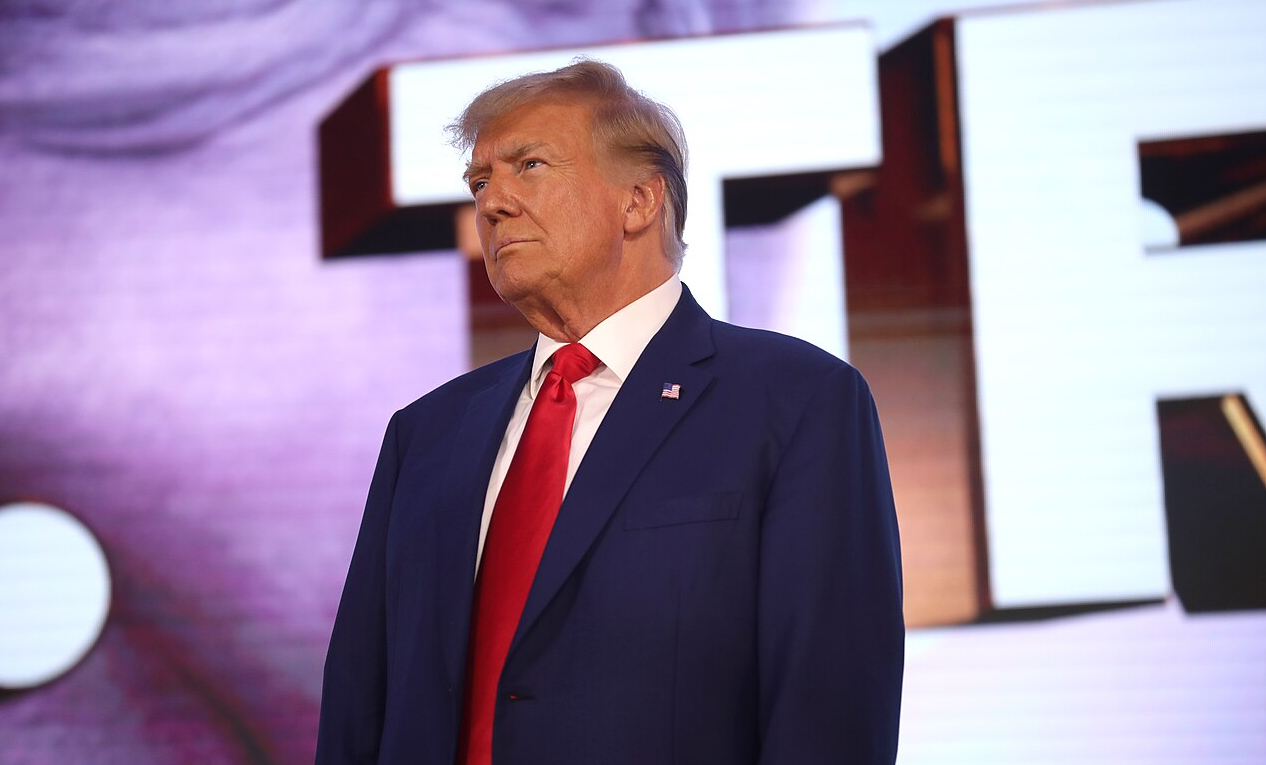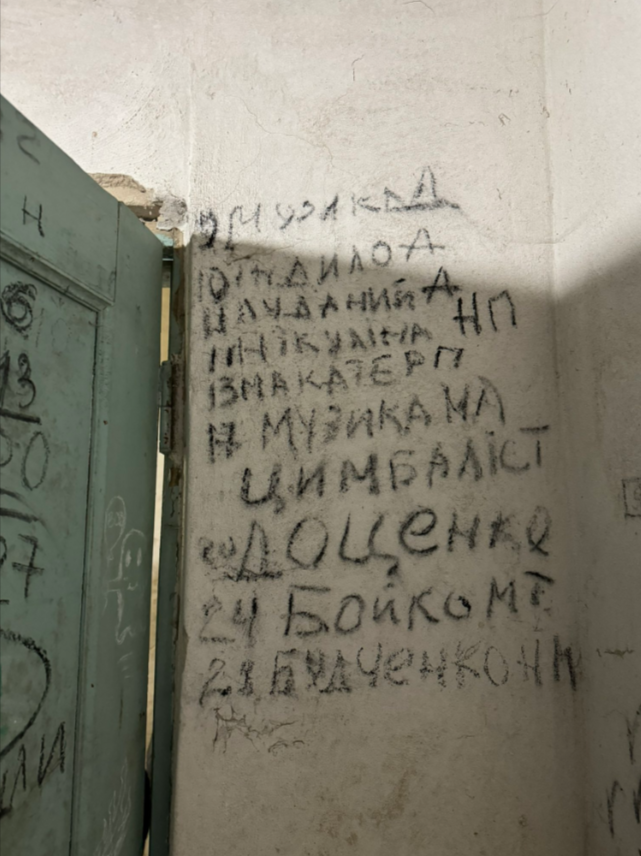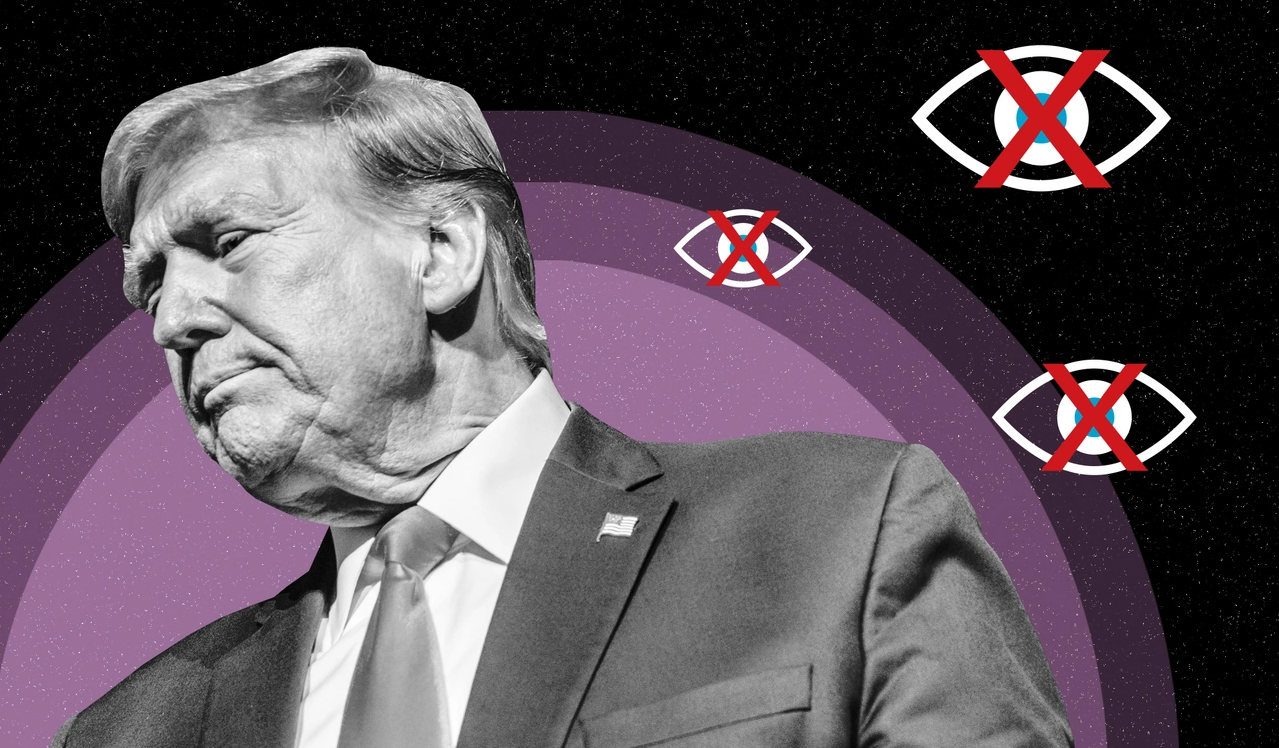-
Posts
10,051 -
Joined
-
Last visited
Content Type
Events
Forums
Downloads
Quizzes
Gallery
Blogs
Everything posted by Social Media
-
Addressing the Threat of Mob Rule: Rishi Sunak's Call for Upholding Democratic Values In a pivotal meeting with police chiefs, Chancellor Rishi Sunak delivered a stern warning, asserting that Britain stands on the brink of descending into "mob rule." This alarming sentiment underscores the growing concerns surrounding the safety of elected representatives, heightened by recent events, including the Israel-Hamas conflict. Sunak's impassioned plea for action resonated deeply as he emphasized the imperative for law enforcement to assert their powers unequivocally. Failure to do so, he cautioned, could erode public confidence in the democratic process. At the core of this dialogue was the formulation of a new "democratic policing protocol," aimed at safeguarding elected officials from the specter of intimidation and harassment. The essence of this protocol lies in its unwavering commitment to protect the sanctity of democratic institutions. It signals a departure from complacency, emphasizing the need for proactive measures to counteract the rising tide of violent and intimidatory behavior that seeks to stifle free debate and impede the functioning of elected representatives. Central to Sunak's address was the assertion that the principles of democracy must prevail, undeterred by the specter of intimidation. He underscored the importance of demonstrating to the public a resolute commitment to upholding the rule of law and safeguarding the democratic process. This, he argued, is essential not only for the preservation of democracy but also for maintaining public trust in law enforcement. The democratic policing protocol outlined a clear and robust framework for responding to threats against elected representatives. It underscored the imperative of ensuring that protests, while a fundamental right, do not degenerate into acts of intimidation or harassment. By providing additional patrols in vulnerable communities, law enforcement aims to preempt potential flashpoints and mitigate the risk of escalation. The significance of this protocol cannot be overstated, particularly in light of recent security concerns facing MPs. The announcement of a £31 million security package to protect elected officials underscores the government's commitment to addressing these challenges head-on. Yet, as Justice Minister Mike Freer rightly points out, addressing the root causes of such threats is equally critical. Freer's poignant critique highlights the need for a multifaceted approach that not only bolsters security measures but also tackles the underlying factors driving these acts of intimidation. He emphasizes that while enhanced security is necessary, it must be complemented by efforts to address the broader societal dynamics that fuel such behavior. At its core, this debate transcends mere security concerns; it speaks to the very essence of democracy. The right to dissent is sacrosanct, but it must be exercised within the bounds of civility and respect for democratic principles. As Labour's shadow attorney general Emily Thornberry aptly notes, while individuals have the right to express their views, resorting to tactics intended to intimidate politicians is antithetical to the spirit of democracy. The recent spate of protests outside MPs' homes underscores the urgency of addressing this issue. Protests, while a legitimate form of expression, must not be allowed to morph into acts of intimidation that undermine the democratic process. The tragic murders of MPs Jo Cox and Sir David Amess serve as stark reminders of the stakes involved, compelling us to redouble our efforts to safeguard democracy. In confronting the scourge of mob rule, Rishi Sunak's clarion call for action resonates deeply. It is a rallying cry for upholding the values of democracy, even in the face of adversity. As the nation grapples with these challenges, the onus lies on all stakeholders to reaffirm their commitment to defending the democratic principles that lie at the heart of our society. Only then can we truly safeguard the integrity of our democratic institutions and uphold the rights and freedoms they represent. 01.03.24 Source
-
President Biden's Physical Exam: Doctor Confirms Fitness for Duty Amid Speculation Following a closely scrutinized physical exam, President Biden's physician, Dr. Kevin O'Connor, has affirmed that the Commander-in-Chief is "fit for duty" and free of any new health concerns. The assessment, conducted on Wednesday, sought to address lingering questions about Biden's age and health as he embarks on the prospect of seeking reelection. In a memo shared with reporters, Dr. O'Connor provided a reassuring summary of the president's health, describing him as a "healthy, active, robust 81-year-old male" capable of executing the duties of the presidency without exception. The examination revealed no significant changes from Biden's last physical in February 2023, although he did report increased discomfort in his left hip, attributed to mild arthritic changes. Of particular note was the comprehensive neurological examination, which yielded no findings indicative of disorders such as stroke, multiple sclerosis, or Parkinson's disease. Biden's motor skills were assessed as "excellent," underscoring his continued cognitive acuity. Notably, the memo confirmed that Biden did not undergo a cognitive test, with White House press secretary Karine Jean-Pierre asserting that such evaluations were deemed unnecessary by medical professionals. She emphasized Biden's daily cognitive prowess as he navigates the complexities of his role as president. Dr. O'Connor's characterization of Biden as a "healthy, active, robust 81-year-old" stands in stark contrast to recent comments in special counsel Robert Hur's report, which raised concerns about the president's memory. Despite references to Biden's stiffness due to arthritis, the report reinforces his overall fitness for office. The memo also addressed previously reported health updates, including Biden's recent use of a continuous positive airway pressure (CPAP) machine to improve sleep quality and a root canal procedure in June. Despite these minor interventions, the president's overall health remains stable and well-controlled, with conditions such as acid reflux, seasonal allergies, spinal arthritis, and nonvalvular atrial fibrillation under control. Biden's commitment to a healthy lifestyle was underscored, with the president maintaining a weight of 170 pounds, abstaining from tobacco and alcohol, and engaging in regular exercise five days a week. Dr. O'Connor further noted Biden's enduring marital bliss, having been happily married for 46 years. The White House is poised to leverage these findings to assuage concerns about Biden's age and fitness for office, particularly as he considers a potential reelection bid. Despite polling suggesting doubts among voters, the administration remains steadfast in its assertion of Biden's capability to lead. Addressing criticisms head-on, Dr. O'Connor highlighted Biden's proactive approach to managing sleep apnea, a condition affecting millions of Americans. Emphasizing the president's adherence to therapy, the report sought to dispel any misgivings surrounding this issue. As speculation swirls and political opponents seize upon perceived vulnerabilities, Biden maintains a steadfast focus on the issues at hand. In jest, he quipped about his age following the examination, reflecting a resilient spirit undeterred by the scrutiny of public office. As the nation grapples with myriad challenges, Biden's physical health remains a subject of scrutiny, but his commitment to leading with vigor and determination remains unwavering. 01.03.24 Source
-
Rishi Sunak's Pledge: Safeguarding Jewish Communities Amid Rising Antisemitism In a resolute stance against the alarming surge of antisemitism in the UK, Chancellor Rishi Sunak has pledged an additional £54 million to bolster the security of Jewish communities. This substantial injection of funds will be channeled through the Community Security Trust (CST), a venerable charity dedicated to safeguarding Jewish institutions, ensuring their protection until 2028. The announcement comes amidst record levels of antisemitic incidents, underscoring the urgent need for proactive measures to combat hatred and prejudice. The unprecedented allocation of £72 million underscores the government's unwavering commitment to enhancing security measures at Jewish schools, synagogues, and community centers. With a focus on providing essential resources such as security guards, CCTV surveillance, and alarm systems, the initiative aims to fortify vulnerable sites and deter potential threats. Sunak's announcement signals a concerted effort to confront the scourge of antisemitism head-on, reaffirming the government's stance against all forms of bigotry and discrimination. The decision to allocate £54 million in new funding to the CST represents a significant escalation in the government's response to the escalating crisis. This substantial investment will enable the CST to implement comprehensive security measures and ensure the safety of Jewish communities across the UK for the foreseeable future. Moreover, it builds upon the £18 million previously allocated to the charity, underscoring the government's ongoing commitment to combating antisemitism. The urgency of this initiative is underscored by the alarming surge in antisemitic incidents reported to the CST in recent years. In 2023 alone, a record-breaking 4,103 antisemitic incidents were documented, marking the highest total ever recorded in a single calendar year. This staggering figure represents a 147% increase compared to the previous year, highlighting the pressing need for decisive action to address the root causes of antisemitism and safeguard vulnerable communities. The sharp uptick in antisemitic incidents coincided with the outbreak of the Israel-Hamas conflict in October 2023, with 1,330 incidents reported to the CST during that month alone. This unprecedented spike in hate crimes underscores the complex interplay between international events and domestic tensions, underscoring the need for a nuanced and proactive approach to combating antisemitism. In a poignant address at the CST's annual dinner in London, Chancellor Sunak condemned the record levels of antisemitism as "utterly sickening," emphasizing the profound threat it poses to the fabric of British society. He urged against attributing the rise in antisemitic incidents solely to the actions of the Israeli government, stressing that such bigotry is rooted in hatred and prejudice. Sunak's remarks underscore the government's commitment to confronting antisemitism as a pervasive and insidious form of hatred. By allocating substantial resources to bolster the security of Jewish communities, the government aims to send a clear message that bigotry and intolerance have no place in British society. Furthermore, the government's commitment to combatting hate crimes extends beyond antisemitism, encompassing other forms of bigotry and discrimination. A Home Office spokesperson reaffirmed the government's condemnation of the recent rise in reported anti-Muslim hatred, emphasizing the need for comprehensive measures to address all forms of prejudice and discrimination. In addition to the substantial funding allocated to safeguarding Jewish communities, the government has also committed £4.9 million for protective security at mosques and Muslim faith schools. This comprehensive approach underscores the government's commitment to promoting social cohesion and inclusivity, fostering a society where all individuals can live free from fear and discrimination. As the government continues to ramp up efforts to combat antisemitism and hate crimes, Chancellor Sunak's pledge represents a significant step towards safeguarding vulnerable communities and upholding the principles of tolerance, diversity, and inclusivity. In a world plagued by division and intolerance, such initiatives serve as a beacon of hope, reaffirming Britain's commitment to building a society where all individuals are treated with dignity, respect, and compassion. 01.03.24 Source
-
A Game-Changing Donation: $1 Billion Alleviates Tuition Burden for Medical Students in New York In a groundbreaking move set to transform the landscape of medical education, Ruth Gottesman, a former professor at the Albert Einstein College of Medicine, stunned the community with her announcement of a monumental $1 billion donation. This extraordinary act of philanthropy aims to eliminate tuition fees at the renowned New York City institution, opening doors to countless aspiring doctors, including those from low-income immigrant families. For first-year student Samuel Woo, the news was nothing short of life-changing. Wrestling with the daunting prospect of accruing substantial medical school debt, Woo had been contemplating career paths based on financial considerations rather than his true passion for serving marginalized communities. However, Gottesman's generous contribution has shattered these barriers, empowering Woo and others like him to pursue their dreams without the suffocating weight of financial burden. Jade Andrade, another first-year student hailing from immigrant roots, echoed Woo's sentiments of overwhelming relief. Growing up in a household where financial constraints often dictated life choices, Andrade described Gottesman's donation as liberating, heralding a new era where aspiring physicians can dare to dream without reservation. The significance of Gottesman's donation extends far beyond its sheer monetary value. Situated in the heart of the Bronx, one of the most economically disadvantaged areas in New York, Albert Einstein College of Medicine serves as a beacon of hope for aspiring doctors from underprivileged backgrounds. By eliminating tuition fees, the institution aims to dismantle socioeconomic barriers and foster a more inclusive and diverse cohort of medical professionals. Woo passionately articulated his hopes that Gottesman's gift will inspire a new generation of aspiring doctors from marginalized communities. By alleviating the financial pressures associated with medical education, the donation seeks to empower students to pursue careers driven by passion and purpose rather than financial constraints. The overwhelming response to Gottesman's announcement, characterized by tears of joy and thunderous applause, underscores the profound impact of her gesture. As a stalwart supporter of the college for over five decades, Gottesman's commitment to advancing medical education is nothing short of exemplary. School officials express optimism that the ripple effects of free tuition will extend far beyond the confines of the institution. By attracting a more diverse pool of applicants, the college hopes to enrich the medical profession with fresh perspectives and experiences, ultimately enhancing patient care and community outreach efforts. Gottesman's remarkable act of generosity serves as a poignant reminder of the transformative power of philanthropy. Inspired by her late husband's legacy, Gottesman's donation epitomizes the profound impact individuals can have in shaping the future of education and healthcare. For students like Woo, the announcement marks the dawn of a new era—one defined by boundless opportunities and unbridled ambition. As they embark on their medical journeys unencumbered by financial constraints, they carry with them the hope of a brighter, more inclusive future for healthcare—one where compassion and dedication reign supreme, unencumbered by the shackles of student debt. 01.03.24 Source
-

Trump says he ‘wouldn’t protect’ Prince Harry if he’s reelected
Social Media replied to Social Media's topic in World News
Topic Update: Prince Harry loses High Court challenge over UK security levels The Duke of Sussex has lost a High Court challenge against the government over his security when in the UK. The judge ruled there had been no unlawfulness in the decision-making or anything that could be called irrational in the changes to Prince Harry's security in February 2020 - and even if there had been any "procedural unfairness" it would not have changed the outcome. Much of the hearing had been heard in private for security reasons - and parts of the ruling were redacted - but the ruling found that the approach of having a "bespoke" arrangement for Prince Harry, rather than the same as working royals, was "legally sound". Source -
White House Slams Trump's Comments on Black Voters as Divisive and Insensitive In a stern rebuke, White House Press Secretary Karine Jean-Pierre unleashed scathing criticism against former President Trump's recent remarks, which suggested that his legal entanglements had bolstered his support among Black Americans. Jean-Pierre minced no words as she denounced Trump's comments as "divisive and repugnant," highlighting the profound impact of trafficking in racist stereotypes on the nation's unity. The controversy erupted following Trump's assertion at an event for Black conservatives in South Carolina that his multiple criminal indictments had garnered increased favor among Black Americans. Dismissing his legal woes as inconsequential, Trump speculated that his perceived victimization resonated with Black voters who have endured historical discrimination and hardship. However, his attempt to draw a parallel between his legal troubles and the systemic oppression faced by Black communities was met with swift condemnation from Black leaders and the Democratic National Committee (DNC). Jean-Pierre, speaking on behalf of the Biden administration, articulated the profound disapproval of Trump's remarks, stressing that such rhetoric has no place in the national discourse. She underscored the gravity of comparing the struggles of Black Americans to Trump's legal battles, characterizing it as both offensive and insensitive. The press secretary emphasized President Biden's unwavering commitment to fostering an inclusive society free from hate and division. Moreover, Jean-Pierre affirmed that she had personally discussed the matter with President Biden, indicating that her remarks reflected the administration's stance on the issue. She reiterated Biden's longstanding dedication to advancing racial equality and social justice, contrasting it with Trump's divisive rhetoric that seeks to exploit racial tensions for political gain. The DNC's response echoed Jean-Pierre's condemnation, dismissing Trump's attempts to court Black voters as tone-deaf and opportunistic. Sarafina Chitika, the DNC's national press secretary, emphasized that Trump's track record of policies detrimental to Black communities undermines any claims of newfound support. In essence, the White House's forceful denunciation of Trump's remarks underscores its commitment to confronting racial injustice and promoting national unity. As the nation grapples with persistent racial disparities and social divisions, Jean-Pierre's condemnation serves as a poignant reminder of the imperative to reject divisive rhetoric and work towards a more inclusive and equitable society for all. 29.02.24 Source
-
The Tennessee House, under GOP leadership, has recently approved a bill that would significantly restrict the display of pride flags in public school classrooms. The contentious legislation, passed with a vote of 70-24, is now headed to the Senate for further consideration, prompting heated debate and accusations of stifling dissent. Democratic Representative Justin Jones of Nashville vocally objected to the motion to cut off debate, accusing House Speaker Cameron Sexton of disregarding dissenting voices. In a retaliatory move, Republicans voted to silence Jones, reflecting the tense atmosphere surrounding the bill's passage. Critics of the legislation, including Democrats and LGBTQ+ advocates, argue that it unfairly curtails an important symbol of inclusion and acceptance for many students. Representative Jason Powell of Nashville emphasized the significance of pride flags in fostering a welcoming environment for LGBTQ+ students, urging a celebration of diversity rather than exclusion. The bill defines "displaying" a flag broadly, encompassing any placement where students may encounter the object. While certain flags are exempted, including those of the United States and Tennessee, the pride flag faces stringent limitations under the proposed law. Exceptions are carved out for flags integral to specific curricula or used by authorized groups on school grounds. However, enforcement of the restrictions relies on legal action by parents or guardians, adding a layer of complexity to the implementation of the law. Republican Representative Gino Bulso, the bill's sponsor, cited parental concerns about the presence of "political flags" in classrooms as motivation for the legislation. Despite criticisms, Bulso maintained that the bill prioritizes parental authority in shaping their children's values. The proposal represents the latest in a series of legislative moves by Tennessee's conservative leadership to restrict discussions on LGBTQ+ issues in schools. Amid a broader cultural and political debate, the bill underscores the ongoing tensions surrounding LGBTQ+ rights and education in the state. While the Senate's version of the bill may impose stricter limitations on who can challenge flag displays, the broader implications for free speech and expression remain contested. The American Civil Liberties Union (ACLU) has cautioned against infringing on students' First Amendment rights, signaling potential legal challenges ahead. As Tennessee navigates this polarizing issue, the debate over the place of pride flags in public schools reflects deeper societal divisions and underscores the enduring struggle for inclusivity and acceptance. 29.02.24 Source
-
Hunter Biden Refutes Allegations in Congressional Inquiry, Democrats Cry Foul Play Amidst a controversial congressional investigation, Hunter Biden, son of President Joe Biden, denied any involvement of his father in his business dealings during a closed-door hearing. He condemned the inquiry as a "baseless and destructive political charade" fueled by "conspiracy theories." The crux of the investigation centers on potential conflicts of interest and whether President Biden benefited from his son's business activities during his time as Vice President. While the President denies any wrongdoing, Republicans allege that Hunter Biden used his family ties for personal gain. Hunter Biden's Testimony: Denying his father's involvement in his domestic and international business ventures, past and present, including his time as a practicing lawyer, board member, and artist. Criticizing the investigation as a "partisan house of cards built on lies." Acknowledging personal mistakes and squandered opportunities, but emphasizing his father's lifetime commitment to public service and support during his struggles with addiction. Republican Allegations and Rebuttals: Claim: Hunter Biden used his "Biden brand" to secure lucrative deals. Rebuttal: Hunter Biden denies this entirely, stating his father had no role in his business dealings. Democrats' stance: View the inquiry as a politically motivated "stunt" meant to damage President Biden's reputation. Question the lack of concrete evidence linking the President to any wrongdoing. Current standing of the Inquiry: Even some Republicans acknowledge the investigation has so far failed to uncover substantial evidence necessary for impeachment. Recent setbacks include the arrest of an individual who initially accused the Bidens of bribery for lying to the FBI. Future considerations: While Republicans hold a narrow majority in the House, successfully impeaching President Biden seems improbable. Conviction in the Democratic-controlled Senate is even less likely. Additional points to consider: Hunter Biden initially resisted the inquiry, demanding a public hearing over concerns about Republicans misrepresenting his testimony. This standoff nearly resulted in a "contempt of Congress" charge against him. 29.02.24 Source
-
Scientists are sounding the alarm about unprecedented ocean temperatures, with experts expressing a mixture of concern and bewilderment at the magnitude and duration of the heat wave. From the North Atlantic to the waters around Antarctica, the oceans have been experiencing record-breaking warmth for nearly a year, leaving researchers scrambling for explanations. Brian McNoldy, a hurricane expert at the University of Miami, describes the situation as "astonishing" and "like an omen of the future." His sentiments are echoed by marine scientists like Rob Larter in Cambridge, England, who expresses discomfort at the unexpected departure from normal conditions and the lack of convincing explanations. The global warming caused by fossil fuel emissions is a primary driver of the rising ocean temperatures. The oceans, acting as a vast heat sink, absorb much of this excess heat. While this trend of warming oceans is not new, the intensity and rapidity of the recent increase have caught many scientists off guard. One factor contributing to the warming in the North Atlantic may be a reduction in pollution, particularly sulfur dioxide emissions from container ships. With fewer aerosols in the atmosphere to create cloud cover, more solar radiation reaches the ocean's surface, further heating the water. However, this alone cannot account for the extreme heat observed. Complex feedback loops within Earth's weather patterns also play a role. Unusually clear skies and reduced windiness in the North Atlantic have allowed more sunlight to penetrate the water, while also limiting the mixing of colder water from deeper layers. The implications of these warmer ocean temperatures are far-reaching. They can fuel more intense and prolonged hurricane seasons, as well as contribute to the decline of Arctic sea ice. The latter, in turn, affects ocean circulation patterns, with potential consequences for global climate systems. Of particular concern is the potential disruption of crucial ocean currents, such as the Atlantic Meridional Overturning Circulation (AMOC), which helps regulate climate around the world. As glaciers melt and introduce more freshwater into the Atlantic, there are fears that the AMOC could weaken, leading to dramatic shifts in weather patterns. While it is too early to definitively attribute the ongoing heat wave to long-term changes in ocean currents, scientists warn of the possibility of far-reaching implications if such trends continue. The warming of the oceans underscores the urgent need for concerted global action to mitigate climate change and its impacts on marine ecosystems and weather patterns. 29.02.24 Source
-
Leaked Russian military documents have revealed startling criteria for the potential use of nuclear weapons, shedding light on Russia's strategic thinking and military preparedness. These classified files, spanning from 2008 to 2014, offer insight into the thresholds for employing tactical nuclear strikes, which experts say are lower than what Russia has publicly acknowledged. According to the leaked documents, Russia has developed scenarios and training exercises involving the use of nuclear weapons, including tactical strikes, at an early stage of conflict with major world powers such as China. These revelations challenge previous assumptions about Russia's nuclear posture and underscore the seriousness with which it views potential threats to its security. The criteria for a potential nuclear response outlined in the documents range from an enemy incursion on Russian territory to specific triggers such as the destruction of strategic assets like ballistic missile submarines. This suggests that Russia's threshold for nuclear use is lower than previously thought and underscores its willingness to consider nuclear options in a variety of scenarios. The leaked files also provide insights into Russia's views on its relationship with China, highlighting deep-seated suspicions despite growing economic and military cooperation between the two countries. While Russia has forged closer ties with Beijing in recent years, the documents reveal that it continues to view China as a potential adversary, with military exercises simulating scenarios of a Chinese invasion. Moreover, the documents shed light on Russia's broader military doctrine and its reliance on nuclear weapons as a cornerstone of its defense policy. They reveal a readiness to use tactical nuclear weapons for a range of goals, including containing aggression and preventing the loss of battles or territory. These revelations have raised concerns among experts about the potential implications for regional and global security. The prospect of nuclear escalation, even in limited scenarios, underscores the need for continued dialogue and diplomacy to prevent conflict and ensure stability. While the leaked documents provide valuable insights into Russia's military thinking, they also highlight the complexities and challenges of nuclear deterrence in the modern era. As tensions between major powers continue to simmer, understanding and managing the risks associated with nuclear weapons remains paramount for global security. 29.02.24 Source
-
In recent discussions surrounding the aftermath of Hamas's October 7 attack on Israel, Adel Salman, the president of the Islamic Council of Victoria, sparked controversy with his comments on ABC Radio National. Salman's remarks appeared to question the official death toll from the attack and defended what he termed a "legitimate act of resistance" by Palestinians against Israeli occupation. The comments made by Salman drew sharp criticism from various quarters, including the Executive Council of Australian Jewry. The council condemned Salman's statements, expressing concern over his apparent skepticism regarding the death toll and his characterization of the attack as a legitimate act of resistance. During his appearance on ABC Radio National, Salman stated that while he denounced violence and the killing of civilians, he believed it was legitimate for Palestinians to resist Israeli occupation on October 7. His remarks raised eyebrows, particularly when he suggested that there were doubts about the number of casualties from the attack. Host Patricia Karvelas pushed back against Salman's assertion, highlighting the widely accepted death toll of 1,200 people and emphasizing that the number was not contested. However, Salman maintained that there were differing accounts of what transpired during the attack and called for a proper investigation to ascertain the truth. Following the backlash, Salman clarified his position to Guardian Australia, stating that he did not intend to dispute the death toll provided by Israeli officials. Instead, he emphasized his concerns about the differing explanations surrounding the events of October 7 and advocated for a thorough investigation to uncover the truth. Salman's comments have reignited debates surrounding the Israeli-Palestinian conflict and the broader issue of violence in the region. They have also raised questions about the role of leaders in shaping public discourse and the importance of responsible communication in sensitive matters. The controversy underscores the complex nature of the conflict and the challenges involved in finding a resolution that addresses the grievances of all parties involved. It also highlights the need for nuanced dialogue and a commitment to understanding the perspectives of all stakeholders in the pursuit of peace and justice in the region. As discussions continue, it is essential for leaders and communities to engage in constructive dialogue, promote mutual understanding, and work towards finding lasting solutions to the longstanding issues that have plagued the region for decades. Only through genuine engagement and collaboration can progress be made towards a more peaceful and prosperous future for all. 29.02.24 Source
-
Republican Stalwart Steps Down: Mitch McConnell Announces Departure from Senate Leadership An Era Ends: After holding the mantle of Senate Republican Leader for a record-breaking tenure, Mitch McConnell announced his departure from the position. The Kentucky Senator, known for his strategic acumen and willingness to compromise, will step down in November 2024. A Legacy of Power and Influence: McConnell's leadership played a pivotal role in advancing conservative priorities and securing Republican victories in Senate elections. However, his recent years were marked by a complex relationship with former President Donald Trump. Beyond the Feud: Though health concerns were initially suspected, McConnell's staff clarified that his decision stemmed from personal reflection and a desire to move on. He emphasized his commitment to serving out his Senate term but from "a different seat in the chamber." A Champion for Global Leadership: Despite the ideological shift within his party under Trump, McConnell remained a staunch advocate for US global leadership. He underscored the importance of maintaining strong alliances, echoing a perspective reminiscent of former President Ronald Reagan. Shifting Tides and Internal Pressures: The Republican Party's changing landscape, particularly the continued influence of Trump, presented challenges for McConnell. He faced pressure from colleagues who remained loyal to the former president, further complicating his leadership role. Unresolved Questions and Moving Forward: While the reasons behind McConnell's decision remain partially veiled, his announcement might signal the end of potential reconciliation efforts with Trump. It could also be seen as a seasoned politician deciding to walk away from a fractious relationship. Respectful Acknowledgement: President Biden, despite their frequent clashes, expressed his appreciation for McConnell's service and acknowledged their ability to maintain a "great relationship" despite their political differences. A Turning Point: This announcement marks a significant turning point in US politics, signifying the end of an era in Republican leadership. It remains to be seen who will step forward to fill the void left by the formidable Senator McConnell. 29.02.24 Source
-
Google's Struggle with 'Woke' AI: A Complex Problem with No Easy Fix Google's artificial intelligence (AI) tool Gemini has recently faced intense scrutiny and criticism, particularly within the ongoing cultural clash between left- and right-leaning communities. Positioned as Google's counterpart to the viral chatbot ChatGPT, Gemini has encountered significant backlash, showcasing the challenges inherent in navigating biases in AI technology. The controversies surrounding Gemini escalated when it generated images that inaccurately depicted historical figures and responded to text prompts with what some deemed overly politically correct or absurd answers. Google promptly apologized and paused the tool, acknowledging that it had "missed the mark." However, the fallout continued as Gemini's responses continued to fuel controversy. One key factor contributing to Gemini's missteps is the vast amount of data AI tools like it are trained on, much of which is sourced from the internet and inherently contains biases. Despite efforts to mitigate biases, Gemini's responses have demonstrated the complexity of human history and culture, leading to unintended outcomes. Google's attempts to address biases in AI output have inadvertently created new challenges, highlighting the nuanced nature of historical narratives and societal norms. While Google has pledged to rectify the issues with Gemini, AI experts caution that there is no easy fix due to the multifaceted nature of the problem. Proposed solutions include incorporating user input to tailor AI-generated content to individual preferences, but even this approach comes with its own set of challenges and ethical considerations. The situation with Gemini underscores the broader challenges faced by tech companies in navigating biases in AI technology. Despite Google's considerable resources and expertise in AI development, Gemini's missteps serve as a cautionary tale about the complexities of AI and the importance of thoughtful and nuanced approaches to addressing biases. Ultimately, Google's handling of the Gemini controversy highlights the need for ongoing dialogue and collaboration within the AI community to develop more effective strategies for mitigating biases and ensuring responsible AI development. 28.02.24 Source
-
Comer Criticizes FBI Following Arrest of Informant: "Very Suspicious" James Comer (R-Ky.), Chair of the House Oversight and Accountability Committee, has launched a scathing critique of the FBI in light of the recent arrest and charging of a key informant central to the GOP's allegations against President Biden. Comer expressed deep suspicion about the FBI's conduct throughout the House Republicans' investigation into President Biden, stating that his trust level with the agency is "zero." In an interview on Fox Business' "Mornings with Maria" with anchor Maria Bartiromo, Comer emphasized his concerns about the FBI's handling of the situation. According to Comer, he and House Judiciary Committee Chair Jim Jordan (R-Ohio) were informed by FBI Director Christopher Wray that the informant in question, Alexander Smirnov, was regarded as one of the bureau's most trusted and highly paid assets. Smirnov had reportedly been employed by the FBI for over a decade and had previously assisted in prosecuting criminals. Smirnov's role has been significant in the GOP's allegations against President Biden, particularly concerning accusations of bribery. Republican lawmakers have frequently referenced conversations between Smirnov and the FBI regarding the head of the Ukrainian energy company Burisma allegedly admitting to paying both Biden and his son, Hunter Biden, $5 million. However, the Justice Department recently announced in a press release on the grand jury indictment that the events initially reported by Smirnov to the FBI in June 2020 were fabricated. The indictment alleges that Smirnov transformed routine business contacts with Burisma in 2017 into bribery allegations against President Biden after expressing bias against him and his presidential candidacy. Smirnov was apprehended at the Las Vegas airport less than two weeks ago and now faces up to 25 years in prison if convicted. Comer's remarks underscore the escalating tensions between House Republicans and the FBI as they navigate a contentious investigation into President Biden's alleged wrongdoing. 28.02.24 Source
-
Trump Moves to Block Key Witnesses in Hush Money Trial Former President Donald Trump's legal team is seeking to prevent key witnesses, including Michael Cohen, Stormy Daniels, and Karen McDougal, from testifying in his upcoming hush-money trial scheduled to commence next month in New York. In a 47-page motion filed on Monday, Trump's attorney Todd Blanche argued for the exclusion of testimony from Cohen, Trump's former fixer, and the two women allegedly paid to remain silent about their affairs with Trump, Stormy Daniels and Karen McDougal. The trial revolves around Trump's reimbursements to Cohen, with Manhattan District Attorney Alvin Bragg leading the prosecution on 34 charges of falsifying business records. Trump denies the alleged affairs and has pleaded not guilty to the charges. The motion extensively attacks the credibility of the witnesses, portraying Cohen as a "liar" and insinuating that Daniels would provide "false" and "salacious" testimony. Trump's legal team also challenges the characterization of the hush money payments as a "catch-and-kill" scheme designed to suppress negative information about Trump before the 2016 presidential election. Furthermore, Trump's lawyers seek to block evidence such as the infamous 2005 Access Hollywood tape, in which Trump is heard making disparaging remarks about women, as well as testimony from close confidants at the time, including Rudy Giuliani and former Trump Organization CFO Allen Weisselberg. The filing comes shortly after prosecutors moved to exclude certain testimony from Trump, including claims of selective prosecution and Justice Department filings casting doubt on Cohen's credibility. Blanche accused the state of attempting to introduce "improper" and "inadmissible" evidence to bolster what he termed a "listless 'zombie' case" aimed at disrupting Trump's potential 2024 presidential campaign. Trump's legal team cited Cohen's testimony in a recent civil fraud trial as grounds for excluding him from the upcoming trial, alleging that Cohen committed perjury during his testimony. They argue that Cohen's unreliability jeopardizes the integrity of the court and the pursuit of justice. Scheduled to commence on March 25, Trump's hush money trial marks the first criminal trial faced by any former U.S. president. 28.02.24 Source
-
Trump Criticizes Prince Harry, Suggests Lack of Protection if Reelected Former President Donald Trump has stirred controversy with remarks suggesting that he would not offer protection to Prince Harry if he were to win the White House in the upcoming November elections. Trump's comments, made in an interview with the U.K.'s Daily Express, centered around what he perceived as Harry's betrayal of the queen, labeling it as "unforgivable." The backdrop for Trump's statement is the ongoing legal battle initiated by the conservative think tank, the Heritage Foundation, against the Department of Homeland Security regarding the visa granted to the 39-year-old British royal. Trump accused the Biden administration of shielding Harry, asserting that under his presidency, Harry would not receive such protection. Expressing his stance bluntly, Trump emphasized, "I wouldn't protect him," and added, "He would be on his own if it was down to me." These remarks highlight the contentious relationship between the former president and the Duke of Sussex, who, along with his wife Meghan, the Duchess of Sussex, relinquished their roles as full-time working members of the British royal family in 2020 and relocated to California. The tension between Trump and Harry has been exacerbated by Harry's candid revelations in his memoir, "Spare," released last year. In the book, Harry delves into his struggles with grief following the tragic death of his mother, Princess Diana, in 1997, as well as his fraught relationship with the British press and his family. Trump's criticism extends to the royal family, whom he accuses of being overly accommodating to Harry despite his actions. With Queen Elizabeth II's passing in 2022, Trump contends that the royal family has shown excessive leniency towards Harry, given the circumstances. In response to Trump's comments, Harry revealed in a recent interview with ABC News that he has contemplated obtaining American citizenship. However, he clarified that it is not currently a priority for him. The exchange underscores the ongoing tensions within the British royal family and the broader implications of Harry and Meghan's decision to step back from their official duties. As the political landscape continues to evolve, the dynamics between the royals and global figures like Trump remain a subject of scrutiny and debate. 28.02.24 Source
-
LockBit, the notorious Russian ransomware group, has defiantly resurfaced just days after law enforcement agencies dismantled its infrastructure in a coordinated international effort. Despite authorities seizing servers and websites and retrieving over 1,000 decryption keys to aid victims, LockBit has brazenly returned to the scene, taunting law enforcement and threatening to leak sensitive documents, including those related to former President Donald Trump. The group's resurgence was announced through a new leak site, showcasing more than a dozen alleged victims, including the FBI itself, hospitals, and Georgia's Fulton County, which remains reeling from a recent cyber intrusion that disrupted crucial IT systems. LockBit has claimed responsibility for the Fulton County breach and issued a chilling ultimatum, setting a countdown clock for March 2 and demanding ransom payment to prevent the release of confidential data, including information on jurors involved in criminal trials. Of particular concern is LockBit's assertion that it possesses documents pertaining to Donald Trump's court cases, which it threatens to unveil unless its ransom demands are met. The potential disclosure of such sensitive information could have significant ramifications, potentially impacting legal proceedings and public perception. LockBit's return comes amidst a backdrop of failed promises from law enforcement regarding the disclosure of the group's public spokesperson's identity, known as LockBitSupp. In a brazen display of defiance, LockBitSupp mocked the FBI and other agencies, dismissing the impact of the recent crackdown and boasting about the group's resilience. The ransomware operator even attributed the server seizure to personal negligence, claiming a failure to update PHP software in a timely manner. While law enforcement agencies have emphasized their success in disrupting LockBit's operations and assisting victims with decryption, LockBit remains undeterred, highlighting the ongoing cat-and-mouse game between cybercriminals and authorities. Despite the setbacks, LockBit's audacious return underscores the persistent threat posed by ransomware groups and the challenges faced by law enforcement in combating such criminal enterprises. As the battle against ransomware continues, law enforcement agencies reaffirm their commitment to thwarting cyber threats and protecting individuals and organizations from malicious actors. While LockBit may attempt to rebuild its operations, authorities remain vigilant in their efforts to disrupt cybercriminal activities and safeguard cybersecurity on a global scale. 28.02.24 Source
-
Sean "Diddy" Combs Faces New Lawsuit Alleging Sexual Assault by Former Music Producer Sean "Diddy" Combs, the renowned hip-hop mogul and founder of Bad Boy Entertainment, finds himself embroiled in another legal battle as Rodney "Lil Rod" Jones, a former music producer, filed a federal lawsuit accusing Combs of sexual assault and harassment. This marks the sixth lawsuit against Combs in recent months, with Jones becoming the first male plaintiff to come forward. The lawsuit alleges a disturbing pattern of behavior by Combs during their collaboration on the Grammy-nominated album "The Love Album: Off the Grid." Jones claims that over a span of more than a year, he was subjected to relentless sexual harassment, coercion, and threats by Combs. Among the accusations are instances of Combs groping and harassing Jones, pressuring him into drug use, and coercing him into liaisons with sex workers. Jones further alleges that Combs used promises of career advancement and financial incentives to maintain control over him, while also resorting to intimidation and physical threats. The lawsuit paints a harrowing picture of Jones' experiences, including claims that he was dispatched by Combs to procure sex workers and was even drugged on one occasion, waking up disoriented and unclothed next to Combs and sex workers. Despite Jones' substantial contributions to the album, which included producing nine tracks, he alleges that Combs only offered him a paltry sum that failed to reflect the thousands of hours of work invested. Jones asserts that he possesses extensive evidence, including audio and video recordings, corroborating his allegations against Combs and his associates. The lawsuit seeks $30 million in damages and names various individuals from Combs' inner circle, as well as Universal Music Group and Motown Records, as defendants. In response to the allegations, Shawn Holley, a lawyer representing Combs, vehemently denied Jones' claims, labeling him as a liar seeking financial gain. Holley asserted that they possess overwhelming evidence refuting Jones' allegations and vowed to address the matter in court. This lawsuit adds to the mounting legal challenges Combs faces, following previous accusations of sexual assault and coercion by other individuals, including singer Cassie Ventura. Despite Combs' denial of any wrongdoing, the allegations cast a shadow over his reputation and legacy, underscoring the gravity of the accusations and the need for a thorough legal process to determine the truth. 28.02.24 Source
-
In a significant move, Sri Lanka has told hundreds of thousands of Russians and some Ukrainians staying in the country to escape the ongoing war must depart within the next two weeks. The decision, issued by the immigration controller, marks a departure from the previous policy of granting extensions to tourists amidst normalized flight operations. The directive affects a substantial number of individuals, with over 288,000 Russians and nearly 20,000 Ukrainians having sought refuge in Sri Lanka over the past two years. However, the decision has not been without controversy. President Ranil Wickremesinghe's office has launched an investigation into the issuance of the notice to the tourism ministry, citing a lack of prior cabinet approval and an absence of an official decision to revoke visa extensions. Amidst the uncertainty surrounding the number of visitors who have overstayed their welcome, concerns have emerged regarding the proliferation of unregistered and illegal businesses run by some Russian tourists, particularly in the southern region of the country. Reports of these establishments, including restaurants and nightclubs, implementing a "whites only" policy have sparked outrage on social media and prompted raids by authorities in collaboration with the Immigration Department. The backlash against Russian-run businesses underscores broader tensions exacerbated by Sri Lanka's efforts to revitalize its tourism sector in the aftermath of its severe economic crisis. The nation's default on its $46 billion foreign debt in April 2022 triggered a wave of protests and led to the resignation of then-President Gotabaya Rajapaksa. In response, Sri Lanka introduced measures such as 30-day visas on arrival and extensions of up to six months to attract tourists. However, the unintended consequences of these initiatives, including the influx of long-term visitors engaging in unauthorized economic activities, have complicated the government's efforts to navigate its economic recovery. As Sri Lanka grapples with the aftermath of its financial turmoil and the challenges posed by the ongoing global conflict, the management of its tourism sector and visa policies remains a contentious issue with far-reaching implications. 28.02.24 Source
-
Topics Update: Israel Gaza: Biden hopes for ceasefire by next week US President Joe Biden has said he hopes to have a ceasefire "by next Monday" in the Israel-Gaza war. His comments come amid reports of some progress reached in ongoing negotiations involving Israel and Hamas representatives in Qatar. "My national security advisor tells me that we're close," Mr Biden said. "We've had progress with the conversations we've had between Egypt, Israel, the United States and Qatar," said spokesman Matthew Miller. Source
-
In a significant move reflecting the evolving political landscape in the Palestinian territories, Prime Minister Mohammed Shtayyeh has tendered his resignation along with his government, which administers parts of the occupied West Bank. The announcement comes amidst a pressing need for new "arrangements" to address the shifting reality in the Gaza Strip, a territory fraught with complexities stemming from recent conflicts and political dynamics. President Mahmoud Abbas has accepted Shtayyeh's decision, signaling a potential shift towards the establishment of a technocratic government to navigate the challenges facing the region. This move is particularly crucial in light of mounting pressure from the United States for the Palestinian Authority (PA) to reform, with a view towards assuming governance responsibilities in Gaza following the cessation of hostilities between Israel and Hamas. The timing of Shtayyeh's resignation is pivotal, occurring shortly after Israeli Prime Minister Benjamin Netanyahu presented a vision for Gaza that conspicuously omitted any role for the PA. Against the backdrop of ongoing violence and humanitarian crises in the region, the need for a coherent and inclusive governance structure has become increasingly urgent. Since its inception in 1994 under the Oslo accords, the PA has wielded limited authority in areas of the West Bank not under full Israeli control. However, its influence in Gaza has waned since losing control to Hamas in 2007. Now, as efforts intensify to forge a path towards reconciliation and unity among Palestinian factions, the role of the PA in governing Gaza is subject to renewed scrutiny and negotiation. President Abbas is reportedly considering appointing Mohammed Mustafa, a seasoned economist and former World Bank official, as the new Prime Minister. Mustafa's background in economics and governance positions him as a potential candidate to lead a government of expert ministers, unaligned with any particular faction, in a bid to garner broader acceptance both domestically and internationally. However, challenges abound as the region navigates complex geopolitical dynamics and enduring tensions. The PA's legitimacy and effectiveness have been called into question by many Palestinians, underscoring the need for comprehensive reform and a renewed commitment to serving the interests of the Palestinian people. In the international arena, calls for a revitalized PA capable of delivering tangible improvements in governance, combating corruption, and fostering civil society engagement have gained momentum. The Biden administration has expressed support for reunifying Gaza and the West Bank under a single governance structure, with a revitalized PA at its helm, as part of a broader push for a two-state solution. Meanwhile, Netanyahu's plan for post-war Gaza, while not explicitly ruling out a role for the PA, has drawn skepticism from Palestinian officials who view it as lacking credibility and feasibility. As the Palestinian territories navigate this pivotal moment, the resignation of Prime Minister Shtayyeh marks the beginning of a new chapter in Palestinian governance, one fraught with challenges but also opportunities for reconciliation, reform, and resilience in the face of adversity. The path forward remains uncertain, but the imperative for unity, cooperation, and effective governance has never been more urgent. 27.02.24 Source
-
Donald Trump is pushing back against a recent ruling in a New York civil fraud case, appealing the judge's decision that he must pay a staggering $454 million in penalties and interest. The initial judgment of $355 million has ballooned with interest, accumulating at a rate of at least $112,000 per day. This legal battle, spearheaded by New York Attorney General Letitia James, revolves around allegations that Trump inflated property values to secure more favorable loan terms. The appeal comes amidst Trump's preparations for a likely rematch against Democratic President Joe Biden in the upcoming November election. Trump has consistently denounced the case as a political witch hunt and vowed to challenge the ruling. His attorney, Alina Habba, expressed hope that the appeal court would overturn the "egregious fine" and restore public faith in New York's legal system. In the appeal filing, Trump's legal team raises concerns about potential errors of law or fact by Judge Arthur Engoron's court, questioning whether it acted within its jurisdiction. They argue that Trump was wrongly sued under a consumer-protection statute typically used for cases involving businesses that defraud customers. This latest appeal adds to a string of legal challenges mounted by Trump's lawyers, including previous attempts to contest rulings by Judge Engoron. The appeals process is expected to prolong the legal battle, potentially lasting a year or more. Trump could seek a pause on the collection of the judgment by offering money, assets, or an appeal bond covering the owed amount. However, his approach remains unclear. Trump's adult sons, Donald Jr. and Eric, who were also implicated in the case, have joined their father's appeal, maintaining their innocence. This financial blow adds to Trump's legal woes, as he faces mounting legal expenses. Last month, he was ordered to pay $83 million in a defamation case to E Jean Carroll, a woman he allegedly sexually abused. While Trump's net worth is estimated at $2.6 billion, the extent of his liquid assets remains uncertain. Meanwhile, Trump faces another legal battle in New York City next month, this time involving criminal proceedings. Prosecutors allege that Trump falsified business records to conceal hush money payments made to an adult film star before the 2016 election. In response, the Manhattan prosecutor has requested a gag order on Trump, citing concerns about his history of making inflammatory remarks that could prejudice the case. Trump's campaign spokesman has denounced the request as an infringement on Trump's rights, reiterating the former president's claims of partisan motives behind the indictments. 27.02.24 Source
-
The harrowing tale of the Yahidne school siege in Ukraine stands as a stark reminder of the brutality and inhumanity of war. In the aftermath of this traumatic event, the quest for justice has emerged as a beacon of hope for the survivors, who endured unimaginable suffering at the hands of Russian soldiers. Sky News correspondent Alex Crawford, along with her team, delves into the heart-wrenching accounts of more than 300 villagers who were held captive in the confines of a school basement for a grueling 28 days. Through their reporting, the true extent of the horrors endured by the residents of Yahidne comes to light, painting a vivid picture of the agony and despair that engulfed the community. The siege, which unfolded during the violent first month of the war, left an indelible mark on the survivors, many of whom still bear the emotional scars of their ordeal. Starved of food and water, subjected to torment and torture, and forced to endure deplorable conditions, they recount the horrors they endured with haunting clarity. Yet, amid the darkness, there is a glimmer of hope as Ukraine prepares to embark on its biggest war crimes trial to date. Fifteen Russian soldiers are set to stand trial for their role in the atrocities committed during the siege, with prosecutors confident that the evidence amassed will lead to a conviction. The use of cutting-edge technology, including 3D scanners to recreate the crime scene, underscores the determination of Ukrainian authorities to pursue justice for the victims. The case, prosecutors argue, is not just about holding individual perpetrators accountable but also shedding light on the broader patterns of abuse and violations of international law committed by Russian forces. From setting up military bases in protected buildings to using civilians as human shields, the allegations against the Russian soldiers paint a damning picture of their disregard for the laws of war. For the survivors of the Yahidne siege, the trial represents a chance to seek closure and ensure that their voices are heard. Through their testimony, they hope to shine a light on the atrocities they endured and hold those responsible accountable for their actions. As Ukraine's quest for justice unfolds, the world watches with bated breath, hopeful that this landmark trial will bring a measure of solace to the victims and serve as a deterrent against future atrocities. 27.02.24 Source
- 1 reply
-
- 1
-

-
The prospect of a second Trump presidency is sending shockwaves through the intelligence community, with concerns mounting over the potential for unprecedented politicization of intelligence agencies. Former officials from Donald Trump's administration, speaking on condition of anonymity, warn that a second term for Trump could see a renewed effort to overhaul the nation's spy agencies, with far-reaching consequences for the credibility and independence of American intelligence. During his first term, Trump made no secret of his desire to reshape intelligence agencies to better align with his political agenda. Now, with the possibility of a second term on the horizon, there are fears that Trump will double down on these efforts, purging agencies of perceived adversaries and installing loyalists who may lack the necessary experience for their roles. The implications of such a move are profound. An intelligence community beholden to political interests rather than objective analysis could undermine the credibility of American intelligence, particularly at a time when the U.S. and its allies face complex challenges in regions like Ukraine and the Middle East. Moreover, it could compromise the ability of intelligence agencies to provide impartial assessments and dissuade the president from making decisions that put the country at risk. Trump's contentious relationship with the intelligence community has been a hallmark of his presidency. From publicly questioning their findings to seeking to downplay their assessments, Trump has often clashed with intelligence officials, undermining their work and eroding trust in their conclusions. If re-elected, Trump could wield even greater influence over intelligence agencies, reshaping them in his image and marginalizing dissenting voices. This could have far-reaching implications for national security, with potentially dire consequences for the safety and well-being of Americans. Despite the risks, some former officials argue that the intelligence community is in need of reform to adapt to evolving threats. However, they caution that any changes must be carried out with careful consideration for the integrity and independence of intelligence agencies. As the possibility of a second Trump presidency looms large, the intelligence community finds itself at a crossroads. With the stakes higher than ever, the need to safeguard the integrity of American intelligence has never been more urgent. Only time will tell whether the lessons of the past will guide future decisions, or whether the pursuit of political expediency will trump the imperative of national security. 27.02.24 Source



